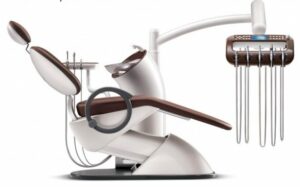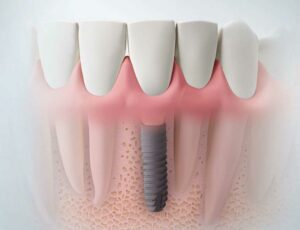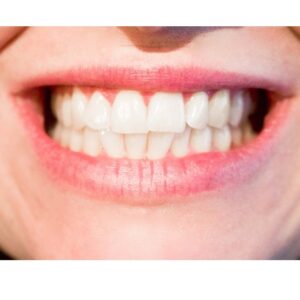While we all have to go to the dentist once or twice a year, some people experience an overwhelming amount of fear at the thought of a dentist visit. Unfortunately, the fear of going to the dentist is a common fear.
While it’s normal to be nervous about going to the dentist, some people associate extreme anxiety and fear with their appointments. This dental anxiety is often known as ‘dentophobia,’ which is a phobia that causes people to avoid checkups, cleanings and other important dental procedures. Avoiding the dentist can lead to long-term teeth, gum and overall dental health issues.
Where does this phobia come from? What are some of the ways you can help your patients to cope with this phobia?
Follow this overview of the psychology behind dentophobia and learn ways to cope with and overcome dental anxiety.
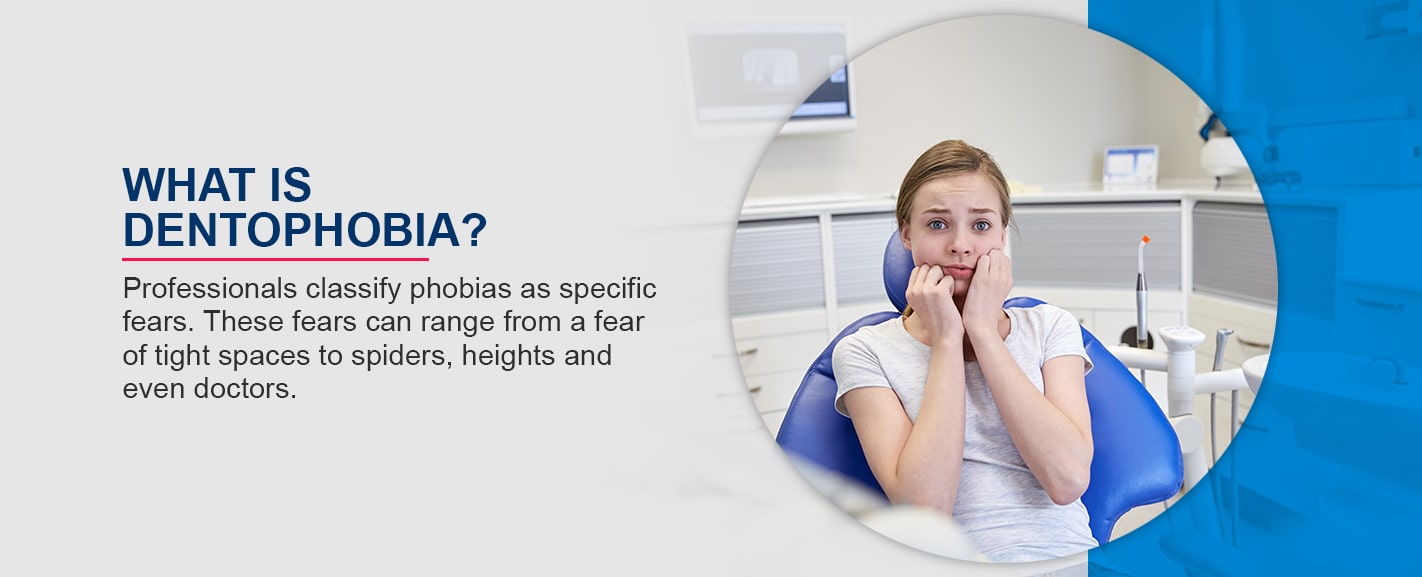
What is Dentophobia?
Although most people will sit in the waiting room of their dentist’s office with a slight pang of nervousness, dental anxiety takes this feeling to an entirely new level. Professionals classify phobias as specific fears. These fears can range from a fear of tight spaces to spiders, heights and even doctors.
Phobias are usually irrational fears. The person experiencing these fears doesn’t often know where these fears stem from, which causes part of their anxiety. Depending on the type of phobia, this can leave a person with mild symptoms of anxiety or completely paralyzed in a state of panic. For this reason, people will do anything to avoid what they fear, even if the state of their health is in jeopardy.
Dentophobia is best defined as a fear of the dentist, which classifies it as a dental phobia. Another term commonly associated with dental anxiety is ‘odontophobia,’ which is the fear of specific oral procedures, like root canals and cavity fillings. These phobias are most often seen in children who have little experience with trips to the dentist.
Typically kids outgrow their fear over time once they’ve understood the process of a dentist visit and understand that you are there to help them. However, adults who have had bad experiences with specific dentists or issues with their dental health in the past will keep this phobia, resulting in overwhelming amounts of fear when visiting the dentist.
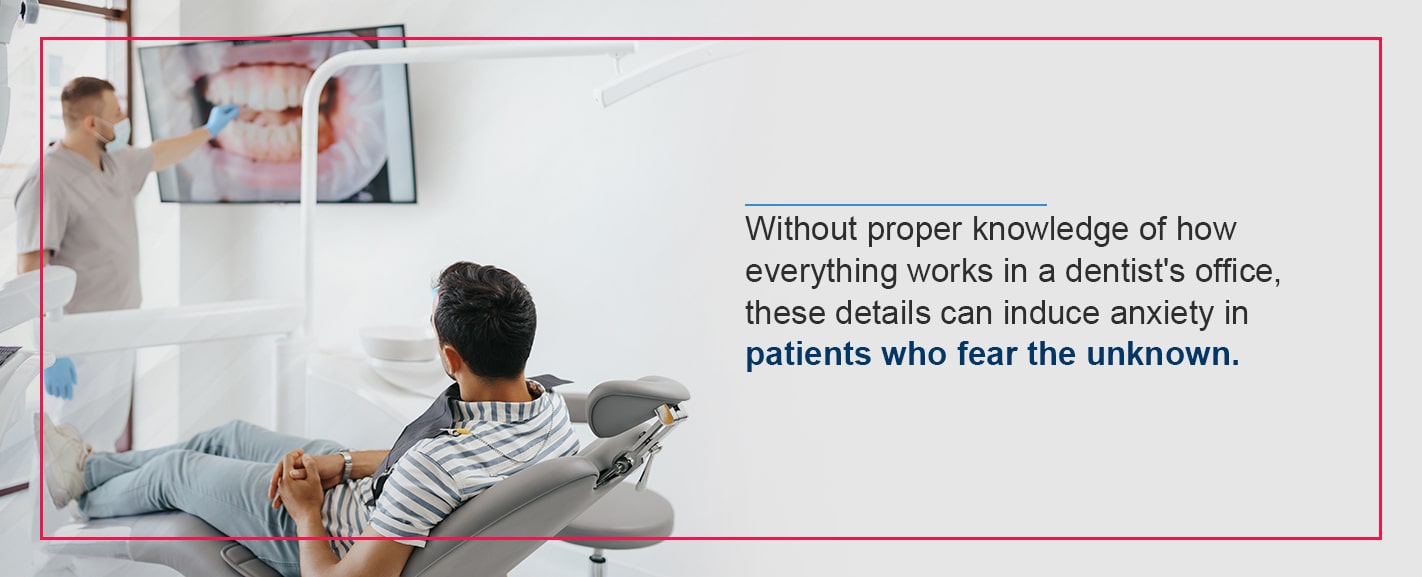
What Are the Triggers of Dental Anxiety?
Phobias are fears that do not respond to reason. Very particular stimuli trigger these fears, and it’s difficult to control the onset of emotions that can be triggered by them. Broader fears like iatrophobia, or the fear of doctors, and nosophobia, or the fear of illness can be sparked by just the mention of an upcoming appointment or walking into a medical professional’s office. For this reason, people with dentophobia and similar anxieties tend to avoid their annual check-ups and cleanings.
Specific triggers of dental anxiety come from the sensory details that are commonly associated with the experience. People with dentophobia are highly sensitive to the sights of the tools, equipment and bright lights around the office. They may also be sensitive to the sounds of drilling, scraping, and other sounds of equipment that may work in people’s mouths. Even the smells of all the chemicals, teeth cleaning supplies and latex that dentists use during an appointment can trigger a patient.
There’s no doubt that the sensory details of a dentist’s office are very specific to that profession. Without proper knowledge of how everything works in a dentist’s office, these details can induce anxiety in patients who fear the unknown. Although these sensory details are common triggers for dentophobia, how do the fears and anxiety of this phobia begin in the first place?
What Causes Dental Anxiety?
There are many reasons why a patient might develop a fear of visiting the dentist. Whether the phobia stems from other fears, an experience, or something else entirely, it’s still important to uncover the root cause. Understanding the lead cause of the phobia is key to learning how to control it before it controls a patient. This understanding is especially important when the situation involves someone’s health. Some of the most common causes of dental anxiety are below.
- A guilty conscience: If someone neglects to care for the health of their teeth and gums, they may feel anxiety towards having you tell them about the consequences of their actions. They may need more work than just a typical cleaning to fix the issues caused by not brushing, flossing or eating bad things for their teeth. This feeling of guilt could lead to dentophobia and a patient avoiding scheduling annual cleanings, even though their teeth might be hurting.
- Past experiences: From a scary first experience as a child to a procedure gone wrong as an adult, there are plenty of experiences that may cause a patient to fear the dentist. After one horrible experience the question, “What if it happens again?” causes the nervousness the patient may feel around dentists. This anxiety can lead people to avoid other potentially awful experiences at the dentist’s office.
- Family history: Parents can unintentionally pass down their fear onto their children, especially if these children are already prone to phobias. Anxiety is a disorder passed on through genetics and can affect generations after generations of patients. Along with genetics, family members may also instill this fear in a child by retelling a horrible experience they may have had at the dentist. Family members do this out of fear that their loved ones will have similar situations happen to them.
The more you know about the causes of a phobia, the better chance you have of avoiding heightening the patient’s fear. Although dentophobia can form on its own, it’s often associated with other phobias. It can work closely with the following phobias listed below:
- Algophobia: The fear of pain
- Trypanophobia: The fear of needles
- Iatrophobia: The fear of doctors (or doctor’s offices)
- Emetophobia: The fear of vomiting
- Aphenphosmphobia: The fear of being touched
The past, the potential “what if’s,” and even other phobias can all be factors in causing dentophobia.
How Common is Dentophobia?
This phobia is more common than you might think. Although many children outgrow their fear of the dentist after a certain age, any of the causes listed above can make trips to the dentist difficult for adults too. This phobia is seen mostly in western societies, where patients fear their avoidance of treatment will lead to pain.
Anyone can develop this phobia, but women are more likely to have dentophobia or odontophobia than men. It’s estimated that 2.7 percent of men and 4.6 percent of women have this phobia. Although the fear is irrational, there are still ways to manage a patient’s feelings during their visits to the dentist.
How Can Dentists Help Alleviate Patient Anxiety?
As a dental professional, you should aim to make your patients as comfortable as possible during their appointments. Today, waiting areas and offices are designed with calming ambiances to make patients feel at ease while they wait. Water features, plants, coffee stations, relaxing music and even aromatherapy can set the tone for a stress-free environment.
If you sense a nervous patient, take extra time to talk with them and make sure they feel comfortable before their appointment begins. For nervous patients, it may be as simple as talking things through, but others who have severe dental anxiety may require other methods to relieve their stress and make their experience of visiting the dentist less daunting.
Medications Used for Dental Anxiety
If a patient is experiencing severe dentophobia, they may be prescribed medication, like valium, before their appointment. If strong pain medication is not needed for the type of appointment, dentists will recommend numbing gels, topical or local anesthesia to numb the area and relieve any pain.
For more in-depth procedures, use nitrous oxide or general anesthesia to help patients feel more relaxed. If there’s a heightened level of anxiety, make sure medication is available to help the patient cope with their cleanings or procedures. Make sure your patient is prescribed just enough medication to benefit their experience.
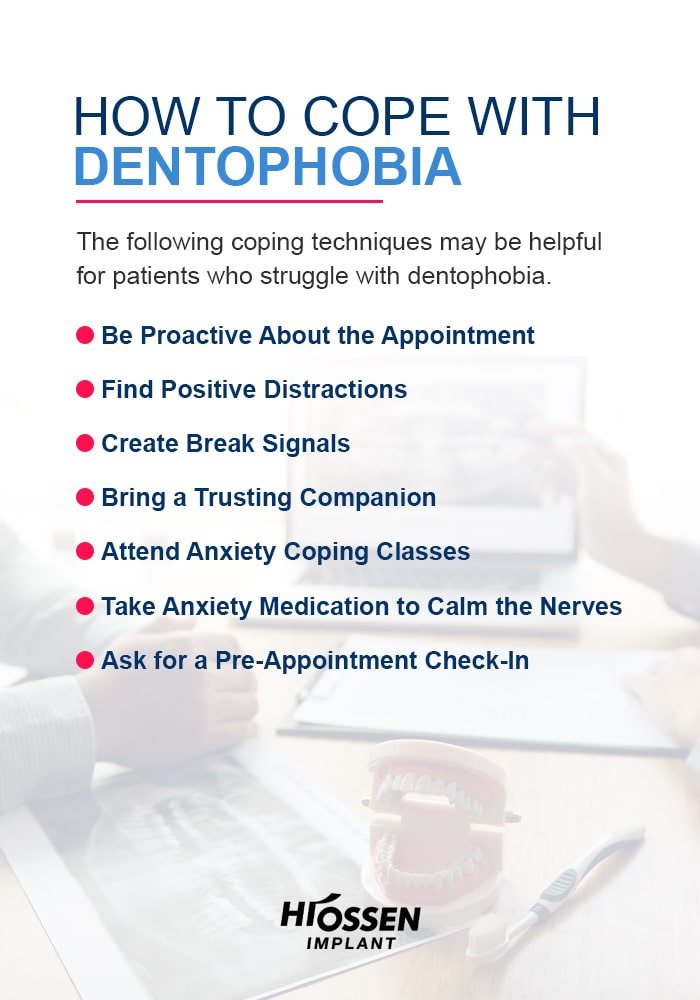
How to Cope with Dentophobia
The best thing someone experiencing dentophobia can do is discuss a plan of action in advance with you, their dental professional. Different solutions may work best for different situations, such as medication, entertaining distractions or even breathing exercises. Managing dental anxiety can look different for everyone.
As a dental professional, it’s important for you to understand the different coping mechanisms for dentophobia, so you can go above and beyond to make your patients comfortable. The following coping techniques may be helpful for patients who struggle with dentophobia.
Be Proactive About the Appointment
Before heading to the dentist’s office, patients can practice breathing exercises or medication to slow down their heart rate and regulate their breathing. They can try different breathing methods to find the one that works for them, then use it throughout the appointment as a check-in.
Focused breaths will give a patient something to think about and block out any of their unwanted thoughts. Meditation and breathwork will reduce the chance of an anxiety attack before or during the appointment. Before entering the dentist’s office, breathing and meditation allow the patient to achieve a calm mind and make the experience of going to the dentist less daunting.
Find Positive Distractions
Sensitivity to the sights, smells and sounds of a dentist’s office can trigger a patient’s anxiety and fear. Creating distractions for your patient with entertainment can foster a peaceful environment for the patient.
Use headphones to draw your patient’s attention to music, television, or podcasts while eliminating the sound of drills and other noises. Most dentist’s offices offer these amenities, but it may make patients feel more comfortable to bring their own forms of media and headphones.
Create Break Signals
The majority of the time in a dentist’s chair is spent with a mouth full of tools and cotton. This makes it difficult for patients to speak up, especially if they’re feeling uncomfortable. A common reason people don’t like going to the dentist is the feeling that things are out of their control.
Patients who need a break can create hand signals for those moments when things become overwhelming whether it’s by waving a hand, lifting a finger or tapping a shoulder. This physical communication will let you know it’s time to step back. Nonverbal signals are great for patients with dentophobia because they can help patients gain trust in you, which makes for a more positive experience for them in the long run.
Bring a Trusting Companion
A familiar face is always comforting to see in a stressful situation. Ask a family member, friend or even another dental nurse to sit with the anxious patient during their appointment. Having a companion to talk and hold hands with can serve as a great relief to someone dealing with dental anxiety. Their conversation can bring a good distraction during the appointment.
Attend Anxiety Coping Classes
Severe cases of dentophobia may call for a more long-term plan of action. A general doctor or you as a dental professional may recommend taking classes on overcoming phobias and anxiety. Most doctors will refer patients to classes that fit their needs best. These classes are mainly taught at clinics and offer methods and techniques on how to handle fears and acknowledge the signs of oncoming anxiety. These classes are especially helpful for patients who find their symptoms of anxiety debilitating.
Take Anxiety Medication to Calm the Nerves
As described above, you may prescribe medication to your patient during your appointment, especially if your anxiety leaves the patient shaking or unable to sit still. If a patient is already taking medication for anxiety, make sure to confirm that it won’t interfere with any other medications used during a procedure.
Ask for a Pre-Appointment Check-In
Take away a patient’s anxiety of not knowing what’s going to happen by having them schedule a pre-appointment check-in. Whether it’s for a quick cleaning or a full procedure, you can ease your patient’s mind simply by going step-by-step through the process with them.
Showing patients how dental equipment is used may help them understand that they won’t cause pain. Explanations of the tools will help patients understand that you have the experience to use these tools safely and effectively. Companies like Hiossen Implant not only provide the tools and equipment necessary but also provide training sessions on how to use each one properly.
Help Patients Cope with Dentophobia
Although dentophobia is common, you as a dental professional are trained to care for patients as safely as possible. Hiossen Implant can deliver the products and services needed to make all of your patients comfortable in your chair.
Bring a sense of confidence and trustworthiness to your dental practice with Hiossen Implant. Contact us today to find more information on our education programs that are designed to help in training to use our equipment. Our equipment is ordered from world-class implantologists and is designed to help every patient feel comfortable, calm, and anxiety-free.



